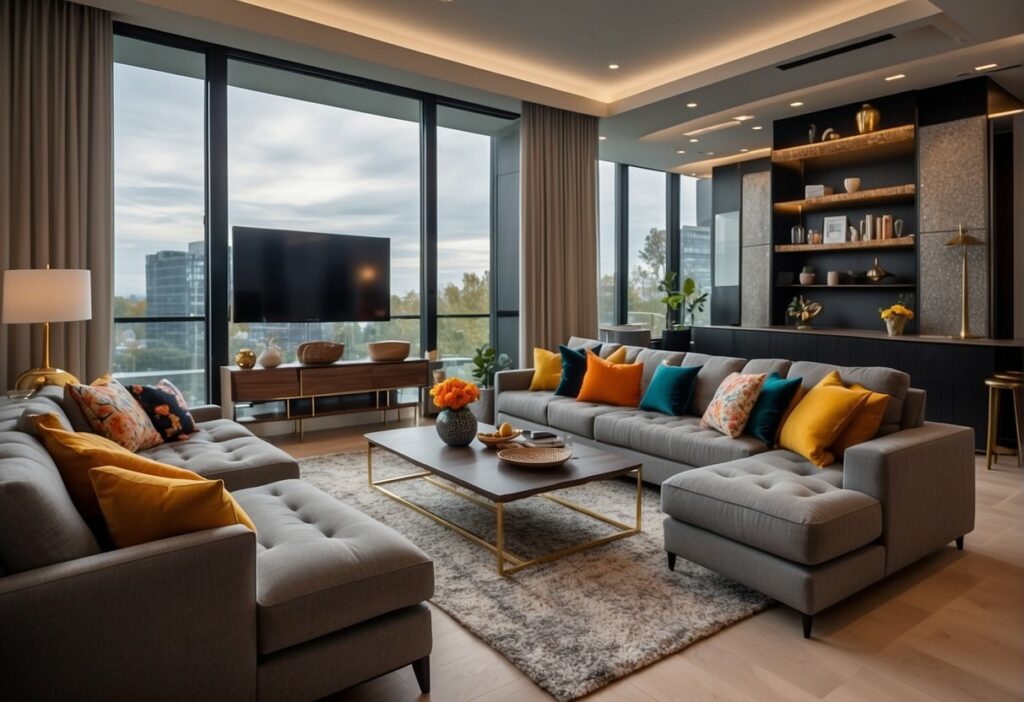Interior Designer Education Requirements: How to Become an Interior Designer
If you’re interested in becoming an interior designer, you might be wondering what education requirements are needed to enter this field. Interior design is a competitive and constantly evolving industry, and there are several paths you can take to become a professional interior designer. In this article, we’ll explore the education requirements for interior designers and what you can expect from each path.

To start, it’s important to understand the fundamentals of interior design education. Interior design is a multidisciplinary field that combines art, architecture, and engineering principles to create functional and aesthetically pleasing spaces. As such, interior design education covers a wide range of topics, including colour theory, spatial planning, materials and finishes, lighting design, and furniture design. Interior design education can be obtained through a variety of programs, including certificate programs, diploma programs, and degree programs.
Professional development and career advancement are also important aspects of interior design education. As an interior designer, you’ll need to stay up-to-date with the latest design trends, technologies, and building codes. Continuing education courses, professional certifications, and industry associations can help you stay current and advance your career.
Key Takeaways
- Interior design education covers a wide range of topics, including colour theory, spatial planning, materials and finishes, lighting design, and furniture design.
- Interior design education can be obtained through a variety of programs, including certificate programs, diploma programs, and degree programs.
- Continuing education courses, professional certifications, and industry associations can help you stay current and advance your career as an interior designer.
Fundamentals of Interior Design Education

If you are passionate about design and creativity, pursuing a career in interior design can be a great choice. However, to become a successful interior designer, you need to have a strong foundation of technical skills, design principles, and an understanding of the design industry. In this section, we will explore the fundamentals of interior design education to help you kickstart your journey as an interior designer.
Academic Pathways
To become an interior designer, you need to have a formal education. Most interior designers have a bachelor’s degree in interior design or a related major such as architecture, landscape architecture or set design. It is important to choose an accredited institution that is recognised by the Council for Interior Design Accreditation (CIDA). This ensures that the program meets high standards and prepares you for the interior design field.
Core Design Competencies
Interior design education focuses on developing core design competencies such as space planning, drafting, rendering, colour theory, design principles, materials and finishes, lighting design, sustainable design, and environmental design. These competencies are essential to create functional and aesthetically pleasing interior spaces that meet the needs of clients.
Understanding the Design Industry
In addition to design fundamentals, interior design education also provides knowledge about the interior design industry. This includes an understanding of the business side of interior design, such as project management, budgeting, and marketing. It is important to have a well-rounded education that prepares you for the demands of the interior design industry.
Overall, pursuing a career in interior design requires a combination of creativity, technical skills, and knowledge of the design industry. With a strong foundation in interior design education, you can become a licensed designer or work for an interior design firm. Stay up to date with the latest trends and developments in the interior design field by joining organisations such as the Society of Interior Designers.
Professional Development and Career Advancement

If you are interested in pursuing a career as an interior designer, it is essential to focus on professional development and career advancement. This will help you stay up-to-date with the latest trends, technologies, and design techniques, as well as enhance your skills and increase your chances of success.
Gaining Practical Experience
One of the most important things you can do to advance your career as an interior designer is to gain practical experience. This can be done through internships, apprenticeships, or related job roles. Hands-on experience will help you develop your skills and build your portfolio, which is essential for attracting potential clients.
Certifications and Licensure
Certifications and licensure are also important for advancing your career as an interior designer. Interior design certification can help you demonstrate your expertise and credibility to potential clients and employers. Licensure is required in some states for licensed designers, which can increase your job opportunities and earning potential.
Skills for Success
To be successful in the interior design industry, you need a combination of creative, technical, and business skills. Effective communication is essential for working with clients and potential clients. Marketing and research skills can help you find new clients and stay up-to-date with the latest trends. Critical thinking and problem-solving skills are essential for overcoming design challenges. Technical skills, such as proficiency in computer software, are also important for creating accurate and detailed designs.
In summary, professional development and career advancement are essential for success in the interior design industry. Gaining practical experience, obtaining certifications and licensure, and developing a range of skills can help you attract clients and advance your career.
Frequently Asked Questions

What’s the typical educational pathway for an aspiring interior designer?
To become an interior designer, you typically need to earn a degree or diploma in interior design or a related field. Most aspiring interior designers pursue a bachelor’s degree, which takes around four years to complete. However, some students may opt for a diploma or certificate program, which can take anywhere from a few months to two years to complete.
Can you dive into the world of interior design without a formal degree?
Yes, it is possible to become an interior designer without a formal degree. However, it is important to note that having a degree or diploma in interior design or a related field can give you a competitive advantage in the job market. Additionally, without a formal education, you may miss out on valuable skills and knowledge that can help you excel in your career.
Which degree should you aim for to excel in interior design?
A bachelor’s degree in interior design is the most common degree for aspiring interior designers. However, other degrees can also be beneficial, such as degrees in architecture, fine arts, or even business. Ultimately, the degree you choose should align with your career goals and interests.
What qualifications are considered essential for a career in interior design?
In addition to a degree or diploma in interior design, there are several other qualifications that are considered essential for a career in interior design. These include strong artistic and creative skills, a good eye for design and detail, excellent communication skills, and proficiency in design software and other relevant technologies.
Is it possible to become a successful interior designer with just a diploma or certificate?
Yes, it is possible to become a successful interior designer with just a diploma or certificate. However, having a degree can give you a competitive advantage in the job market and may lead to more opportunities for career advancement.
How does higher education impact your journey to becoming an interior designer?
Higher education can have a significant impact on your journey to becoming an interior designer. Obtaining a degree or diploma in interior design or a related field can provide you with the skills and knowledge needed to excel in your career. Additionally, higher education can help you build a strong professional network, which can lead to job opportunities and career advancement.



